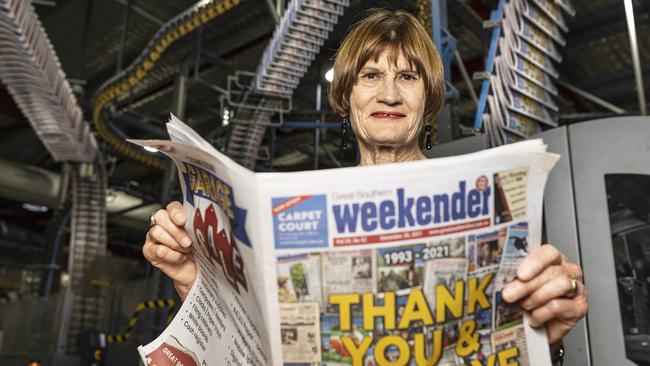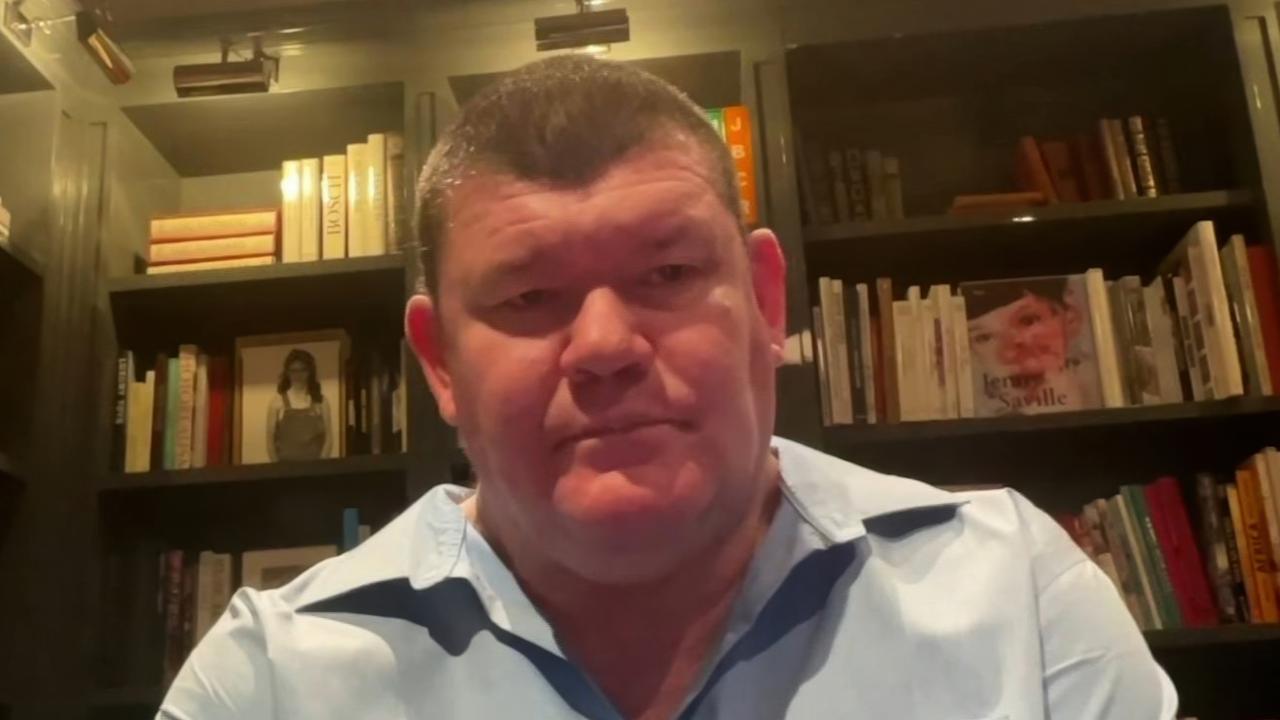Presses fall silent as Albany’s former golden goose loses fight for survival
At the tender age of 28, Albany’s Great Southern Weekender is being euthanised by the small-town businessmen who gave it life.

An audacious idea to start a newspaper in a country shed became an unlikely golden goose for shareholders, and one of Australia’s last independent newspapers just keeps on giving even in death.
At the tender age of 28, Albany’s Great Southern Weekender is being euthanised by the small-town businessmen who gave it life on Western Australia’s south coast. Newer shareholders could also see that winding up meant a windfall while pushing on meant uncertainty and probably more losses. The vote to kill off the Weekender was unanimous at an annual general meeting on November 4.
Hard-charging journalist Howard Gaskin established the Weekender in 1993 after appealing to local businesspeople who wanted an alternative to the only newspaper in town at the time, the Albany Advertiser.
Retired car dealer John Barnesby, now 89, said he kicked in $10,000 when Gaskin came to see him at his Ford car yard because he was persuasive and “he just stayed until I said yes”. But Mr Barnesby said he had also come to believe the Advertiser – part of the stable of West Australian newspapers now owned by Kerry Stokes’ Seven West Media – had developed “a bit of a socialist undertone”.
“We wanted another point of view,” Mr Barnesby said.
“There were many many years when we were getting a $1 dividend for each $1 share. It was a very profitable operation.”
Albany is a newspaper-reading town: for a while there was room for the Advertiser, the Weekender and two locally produced periodicals – the Southerly and the Aurora. But when national agencies stopped placing advertisements in regional publications, this began to bite.
Then in 2018, all hell broke loose when the Weekender published a story about Albany’s peculiar and protectionist trading hours laws. One of the newspaper’s major shareholders, the undisputed “King of Albany” Paul Lionetti, was furious at the front-page story titled “Albany shopping Dullsville”. Mr Lionetti has two of the three IGA supermarkets in Albany that are allowed to trade seven days while big chains such as Coles and Woolworths must close on Sundays. The rules are set by the local council partly because it deems IGAs to be small operators. Mr Barnesby said he thought the story was interesting and a good explanation of how Albany’s shopping laws differ from other towns. However, Mr Lionetti’s IGAs and two others – one in Albany’s northern suburbs and one in the nearby town of Mt Barker – cancelled their advertising.
In May 2020, Mr Lionetti was cross with the Weekender again over a court report about his son Steven, who is a confessed burglar. The story referred to Steven as “the son of Albany business tycoon Paul Lionetti”.
On the day that edition of the Weekender was delivered to 21,000 homes and businesses around Albany, the newspaper’s managing director Mark Loveridge got this message on his phone from Mr Lionetti’s number: “Hi Mark, thanks for the article on Steven and can you please come and remove the papers from my premises you (expletive deleted) dog? Thanks for highlighting my name (expletive deleted). Will destroy you and the paper. Thanks heaps (expletive deleted).”
Mr Lionetti banned the Weekender’s editor Ian Beeck from his waterfront pub, Due South, and any other Lionetti family business.
When Beeck next tried to make an appointment with his hairdresser, she apologetically told him that because Mr Lionetti was the landlord, he was not allowed on the premises.
Two weeks later, Mr Lionetti used Facebook to thank his contacts for hitting the Weekender where it hurt: “To all my friends in business who have stopped advertising in the Great Southern Weekender, a big thank you,” he wrote.
The tension was uncomfortable for a while but the protagonists eventually moved on. In a town with a population of just 38,000, locals say you get used to living close to your friends as well as your enemies.
Steven went to jail. Mr Lionetti built a Hilton hotel on the Albany foreshore. Beeck left the Weekender and published a biography of war hero Murray Maxton: Strike Hard, Strike Sure.
The Weekender, however, struggled. Mr Loveridge said advertising revenue had fallen 40 per cent in March 2020 when the coronavirus reached Western Australia. While Mr Lionetti’s dispute with the newspaper was the talk of the town, Mr Loveridge said it was not a factor in the losses that ultimately led shareholders to their decision to shut it down.
JobKeeper delayed the inevitable. And the company was awarded two federal grants in October 2019 and June 2020 totalling $503, 178.
Mr Barnesby predicted he and other shareholders including Mr Lionetti would get a dividend of about $3 per share once the company’s two properties and its radio station licence were sold. He said there was no debt and money in the bank, which made it a practical time to wind up.
Gaskin’s wife Anne was emotional as she watched the presses roll on the last edition of the newspaper that her late husband started against the odds.
“I feel disappointment and sadness in remembering all the hard work and effort made by individual staff members and board members,” she said. “The Great Southern Weekender had times of great success and great struggle. Good and bad decisions were made along the way.
“The end was sudden. The decision made as the losses had mounted up and paper’s viable future looked bleak.”



